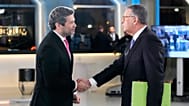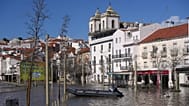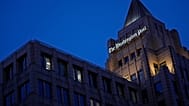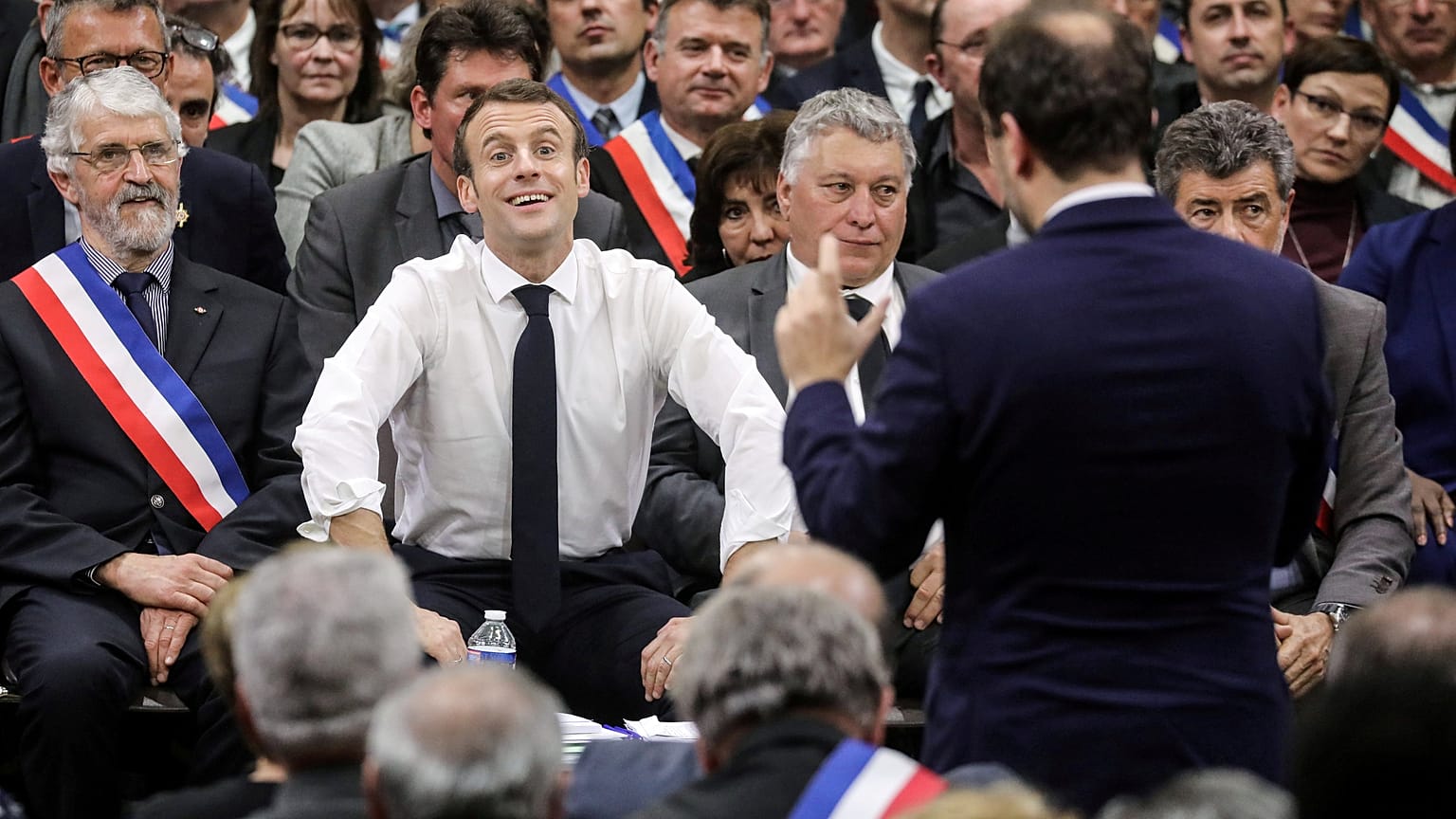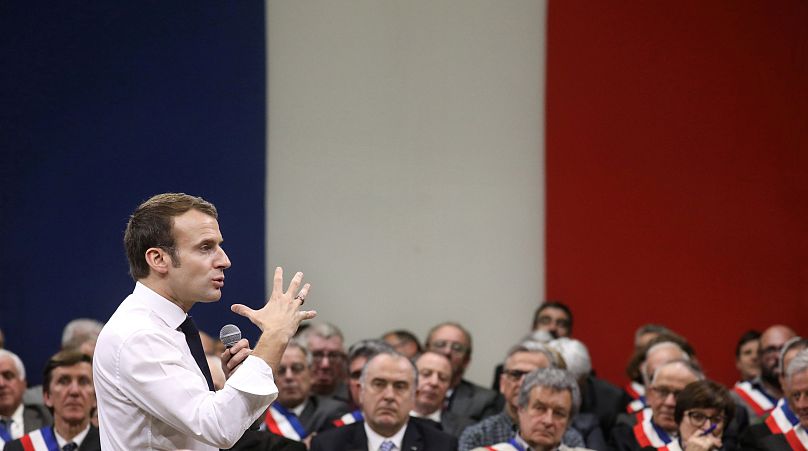French President Emmanuel Macron will meet mayors from the Auvergne-Rhône-Alpes region on Thursday as part of his Great National Debate initiative. Why were the debates started and how do they work?
Last week, French President Emmanuel Macron kicked off his three-month national debate initiative to appease protesters from the gilets jaunes (yellow vests) movement.
Where have debates have taken place so far?
The first debate was held in the northern town of Bourgtheroulde with 600 mayors in attendance from the Normandy region. Macron opened the floor by saying he hoped discussions would be free of "taboos" and noted that all questions were welcome.
Macron then visited the town of Souillac in the Occitanie region where he again exchanged with mayors for more than five hours.
In this second instalment of the grand debate, mayors were more direct with the president and told him that words wouldn't be enough to end the "gilets jaunes crisis".
On Thursday, January 24, Macron will meet representatives from the Auvergne-Rhône-Alpes region in the town of Valence.
What is the 'Great National Debate'?
A series of town hall-style gatherings were scheduled across France where citizens could speak to their local mayors about their concerns.
"Beyond those written, all questions are open-ended," said the president at the first meeting in Bourgtheroulde.
"If there are intelligent questions, topics that I have not seen that emerge, they will be addressed.
"There must be no taboos when we speak to each other."
Macron talked about "social fractures" including territorial, economic, and democratic issues that led to the gilets jaunes protests.
How is the debate supposed to work?
The public forums will run for two months until March 15. Macron said he would use the proposals that come out of the sessions in order to build “a new contract with the nation.”
The meetings will be held in local auditoriums or in other public facilities.
Ministers in Macron's government, Sebastien Lecornu and Emmanuelle Wargon, were tasked with organising the sessions. Five independent auditors were chosen to make sure that the government was not overtly interfering in the debates.
How can people participate?
On Monday, citizens started to make proposals online at granddebat.fr. Beginning on March 1, the government will be holding “regional citizen conferences”, intended to summarise the main findings from the sessions and establish concrete proposals for Macron to consider.
What are the permitted topics of discussion?
In a letter to the French people, Macron said that no questions would be off-limits but added he would remain faithful to his economic reform agenda.
Macron set out four main areas as a framework for discussion: tax and government spending, public services, the environment, and representation of the French people in government.
However, on the topic of immigration, Macron said the right to request asylum "could not be questioned."
What's been said so far?
In the first debate, questions concerning the closure of public hospitals in rural areas, social justice, and the wealth tax, which Macron's administration scrapped, were brought up by mayors.
These same points were raised by the mayors of the rural Occitanie region where school closures and cuts in public transportation services have seriously affected the area. The mayors also noted the growing "brain drain" problem caused by qualified individuals leaving due to a lack of employment opportunities.
Macron said that the government would invest in existing methods of transportation rather than creating new ones and that he supported the idea of decentralising jobs from Paris in order to generate jobs in hyper-rural areas of the country.
The president said he would be willing to revisit certain decisions such as the limitation to 80km/h on secondary roads but he again defended the removal of the ISF "fortune tax" — a sticking point for the gilets jaunes.

